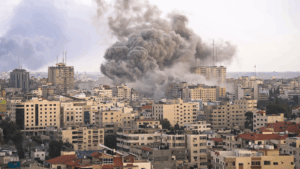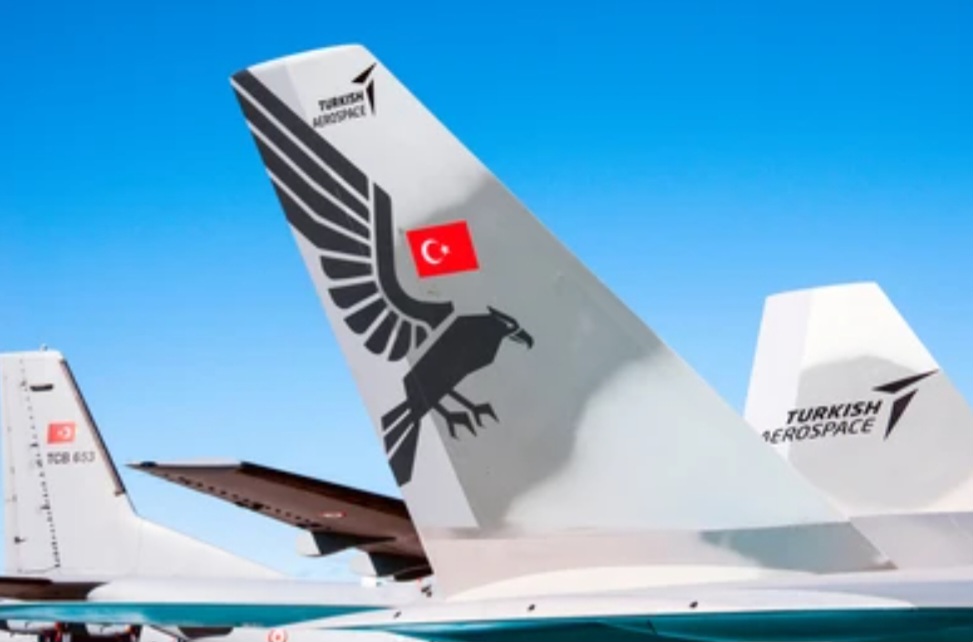The private television channel NTV spoke of a suicide attack. The two terrorists reportedly burst into the entrance to the building before one of them detonated the bomb he had on him. Following this explosion, exchanges of fire took place for more than an hour.
The attack left five people dead and twenty-two injured, the attackers, a man and a woman, were also neutralized.
The PKK, the Kurdistan Workers’ Party, an armed political movement fighting against Turkish central power, finally claimed responsibility for the attack on Friday October 25, 2024. For the PKK these targets are legitimate in the context of the fight for Kurdish autonomy.
The PKK claimed that this attack had been planned for a long time. It served to send a “message” to the Turkish government against their “genocidal practices”. According to the PKK, Turkish Aerospace Industries produces weapons that have been used to kill thousands of civilians in Kurdish territories. The victims include children and women.
A very rapid response from the Turkish Government
Turkish armed forces immediately launched attacks on PKK positions in Iraq and Syria. Indeed, the latter country could be the one through which the two terrorists infiltrated Turkey. The strikes were focused on military installations, ammunition depots and strategic sites of the Kurdish armed group.
The Turkish Ministry of Defense announced that it had launched these strikes in accordance with Article 51 of the United Nations Charter and in particular the right to self-defense. Still according to the Turkish Ministry of Defense, 32 targets were destroyed.
A long history between the PKK and Turkey
This attack comes in a particular context in the history between Turkey and the PKK. In fact, the leader of the PKK, detained since 1999 on the prison island of Imrali in the Sea of Marmara, had just received authorization to see his family for the first time in four years.
The PKK was founded on November 27, 1978 by Abdullah Öcalan and a group of Kurdish activists, mainly students. This movement was born in a context of severe repression of the cultural and political rights of Kurds in Turkey, who represent 15 to 20% of the population. Their language and identity were denied by the state.
The conflict between the PKK and Turkey dates back to the 1980s, when the PKK launched an armed insurgency to achieve Kurdish independence, in the face of decades of cultural repression by the Turkish government. The conflict has resulted in thousands of deaths and the displacement of many people, with violent clashes and Turkish military operations in Kurdish regions.
After the capture of PKK leader Abdullah Öcalan in 1999, the movement shifted toward demanding regional autonomy rather than independence. Although peace talks were attempted, notably in 2013, they failed in 2015, leading to a resumption of hostilities.
The war in Syria has heightened tensions, with the Turkish government stepping up attacks against Kurdish militias allied with the PKK.
What future between the PKK and Turkey?
The future of the conflict between the PKK and Turkey is uncertain. However, violence is likely to continue in the years to come. Turkey is expected to continue its military operations against the PKK, both within the country and in border regions such as Iraq.
The Turkish government appears reluctant to restart peace negotiations, in part because of its security concerns. Changes could occur if the situation in neighboring countries, such as Syria or Iraq, evolves, or if the Turkish government changes and decides to resume dialogue with the Kurds.
However, until there is a real willingness to talk, the conflict is unlikely to end soon, and tensions are likely to continue, affecting civilians and the stability of the region.










